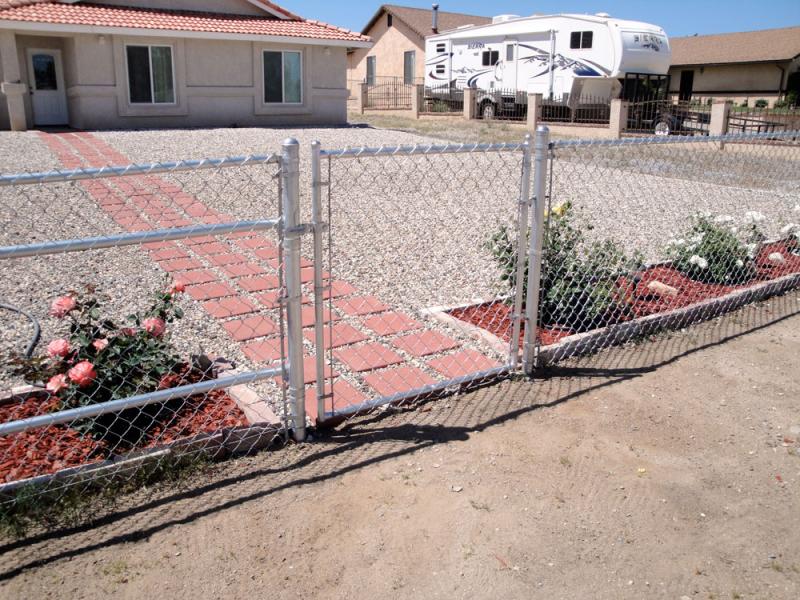An important part of being a homeowner is keeping your property safe and secure by maintaining its gates and keeping them in great condition. A defective or broken gate can be a hazard for a homeowner as well as the guests who come visiting. If you have pets, the last thing you want for them is to run into pointed wires jutting out from a wrecked gate. A broken gate will also make it easy for pets to run outside, where they can get into all sorts of trouble.
It is important to keep your gate well-maintained to avoid frequent problems which require repairs. All the various joints on the gate that can get stuck must be lubricated regularly to avoid mechanical problems. You can speak to the contractor regarding a maintenance contract when you get your gate installed. Usually, an annual inspection of the gates by your contractor should be enough to take care of the repairs, especially in residential properties as they aren’t opened and closed as often as those on commercial properties. When getting your gate installed, speak with the contractor about the essentials of gate maintenance.

When dealing with a faulty gate, it’s best to leave the repairs to the professionals. Consider a reputable gate repair company in Victorville. They understand that repairing a gate is not an easy task and send professionals to examine your gate.
Problem Areas
A few common problems seen in faulty gates due to the lack of maintenance include:
- Loose Wires: Loose wires is a common issue that can be fixed using a fence stretcher. This problem is found mostly in chain link gates. A short wire can be used to splice broken wires back together. Also, sagging wires can simply be tightened to fix the problem.
- Sagging Gate: Once a metal or wooden gate starts sagging, opening and closing it can become a problem. When a gate sags, it drags on the ground and becomes very difficult to maneuver. Unless your gate posts are set in concrete and go deep in the ground, it is highly likely that the gate will drag. This is also a common problem in areas where the ground is unstable and the gate posts are unable to stay in the same position for long. A small wheel can be affixed underneath the part of the gate that is sagging. The wheel supports the gate, while preventing any further sagging.
- Latch Problems: A latch is a metal prong that is inserted into a hole in the other post when closing the gate. It is typically used in metal gates. To release the latch from the post, you can simply pull it up. Over time, however, gate posts can move and the latch may not be able to reach them anymore. This may mean that the posts need to be reset or the gate needs to be fixed properly. An easier alternative is to simply fix two small boards on either sides of the latch hole on the gate post. Once you shut the gate, the metal latch will be inserted between the two boards and will allow you to close the gate.
- Open Gates: If your gate is made of wires, it can become difficult to close them over time, especially if they are placed tightly together. To shut such a gate better, have a handle installed on the gate post. This will give you greater leverage when shutting the gate. You can also attach a metal handle with a wire loop on the top of the gate post. When the handle with the wire loop attached to it is opened, you will have a few extra inches to shut the gate.
Types of Gates
Various types of gates bring with them unique set of problems. Often, you may find that you have the wrong gate type for your land. For example, uphill properties would do better without swinging gates, while properties with no concrete ground should avoid rolling gates. If land around your property’s entrance is uneven, a swing gate would be better than a rolling gate.
The two main types of gates are:
- Rolling Gates
Many businesses and larger properties need rolling gates, which are simpler to maintain than most other types of gates. Cleaning and polishing them is easy and doesn’t require much time or labor. The mechanical parts of these gates are stored in sealed compartments, which offer them protection from rain and dust. A sliding/rolling gate slides over a track, which must be kept free of debris at all times as obstructions can derail the gate or prevent it from sliding completely. - Swing Gates
These types of gates require far less maintenance as they have fewer moving parts as compared to sliding gates. This means less wear and tear, and a lowered likelihood of them breaking down. The common problems with these type of gates usually involve damaged gate arms and broken hinges or obstructions that prevent them from closing.
Closing thoughts
As gate repair and maintenance requires working with/around sharp wires and other pointed parts, it is highly recommended to hire professional services instead of attempting to do it yourself. To avoid maintenance-related problems in your gates, make sure to take appropriate and timely measures to keep them in the best shape throughout the year.

